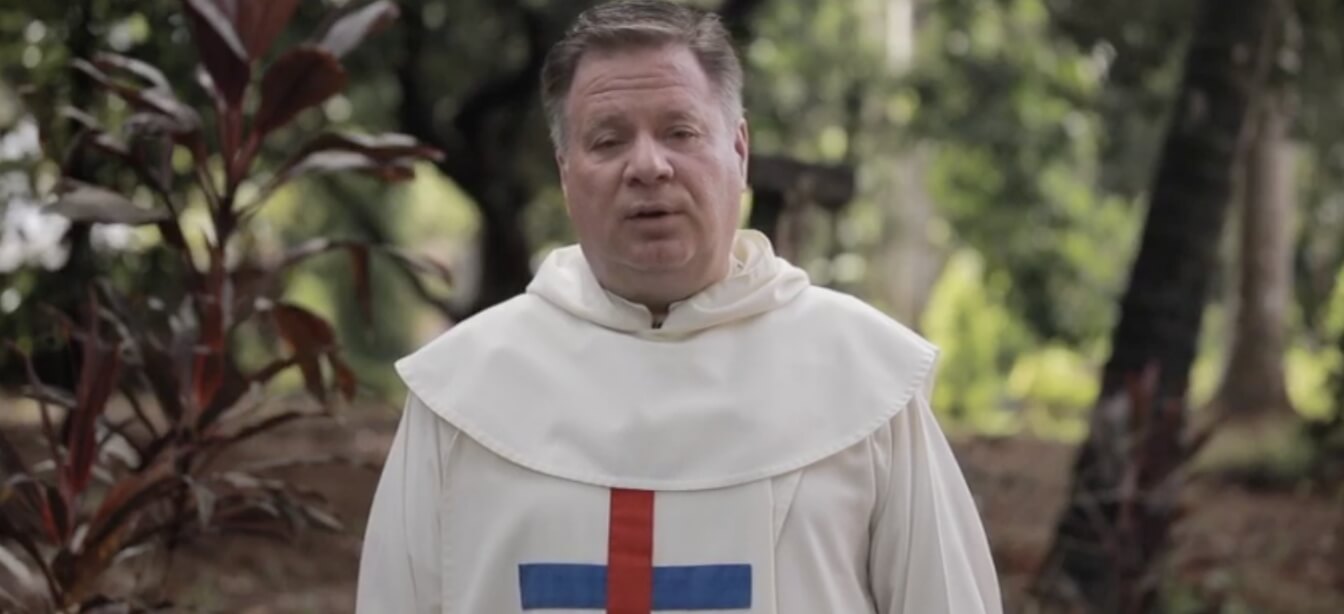
Who we are
ORDER OF THE MOST HOLY TRINITY AND OF
THE CAPTIVES (
founded in 1198)
(St.MICHEAL OF THE SAINTS VICE PROVINCE ,INDIA )
In our world, people and nations suffer oppression because of new and old forms of slavery, and they are wounded in the fundamental values of faith and justice. The Trinitarians, together with the Trinitarian family, choose to heed the yearning for liberation, and the cry of hope, and offer a service of mercy and redemption to the oppressed of our society and, in a special way, to the persecuted and discriminated against because of their religious faith, of fidelity to their conscience or to the values of the Gospel.
DONATE NOW

Trinitarian History.
The Order of the Most Holy Trinity and of the Captives (The Trinitarians) was founded by St. John DeMatha and St. Felix of Valois at the end of the 12th century and renewed in 1599 by St. John Baptist of the Conception.
As tradition tells us, St. John was struck with a vision while celebrating his first Mass, that of Christ holding two chained captives by the hand, one a Moor, the other a Christian. The Christian captive carried a staff with a red and blue cross. After the Mass, St. John decided to devote himself to the task of ransoming Christian captives from the Moors—a work that impressed him as one of the greatest acts of charity since it benefited their souls and their bodies.
From the outset, a special dedication to the mystery of the Holy Trinity has been a constitutive element of Trinitarian life, the beginnings of which are deeply rooted in the Crusades. “Glory to the Trinity and Redemption to Captives” was then, and still is, in the heart of every member.
Along with the Order’s mission of ransoming Christian captives, each Trinitarian Community served the people of its area by performing works of mercy.

Mission Statement of the Vice-Province
Moved by the unity and redemptive love of the Trinity, we, the Trinitarians in India, have voluntarily chosen to live out our consecrated lives in the worship of the Triune God — Father, Son and Holy Spirit. We live in communities, following the charism of our founder, St. John DeMatha. Stirred by those persecuted for their faith and the social evils of his time, he wanted to provide adequate remedies for them.
Following the dictates of St. John DeMatha, we commit ourselves to work on behalf of those persecuted for their faith, the imprisoned and on behalf of those oppressed by the social evils of our day. We also commit ourselves to be a leaven among the families and especially the youth, to enable them to live the fullness of life in the Trinity. May Our Lady of Good Remedy, the Patroness of the Trinitarian Order, who always brings solace to the afflicted and the abandoned, intercede for us before the throne of the Triune God to strengthen our vision and our ministries.


Trinitarian Mission in India
The Trinitarians came to India in 1986 and erected their first house under the Syro-Malabar Church hierarchy in the jurisdiction of the Archdiocese of Thrissur. The Trinitarians are now present in five dioceses in India: Archdioceses of Thrissur, Thalasseri, Bangalore, Guwahati and the Diocese of Bhadravath.
Upholding the freedom of all people, especially the broken who are marked by the hardships of the human condition, the Trinitarians are committed to a way of life rooted in the Gospel and expressed in works of mercy and redemption. We are committed particularly to those who suffer because of their faith in Christ.


Trinitarian Mission in Assam and North East
Inspired by the redemptive charism of St. John DeMatha, the Trinitarians launched a missionary project under the Archdiocese of Guwahati in Assam in 2008. We were entrusted with a parish and school by the Archdiocese, at Tamulpur in Baksa Dt., a remote village about 90 km away from Guwahati where we engage in pastoral work, evangelization of the local people, supporting Christians in difficult situations, social work, boarding for boys, education of children and youth, and much more.
Catholics in our parish are mainly from the tribal communities of Santals and Adivasis. Most of these people remain very poor and live in interior villages where there is less chance of electricity, education and hospitals. The majority suffer from malnutrition. Many perish due to malaria and other diseases. Lack of education has generated a negative impact on their lifestyle.


